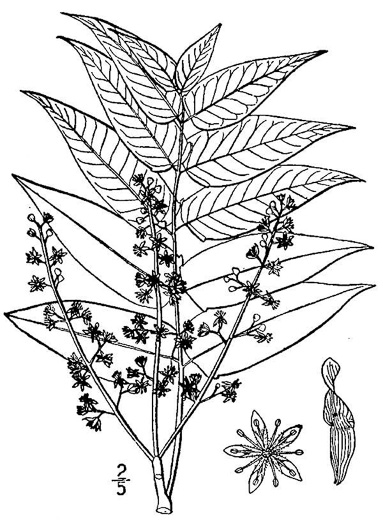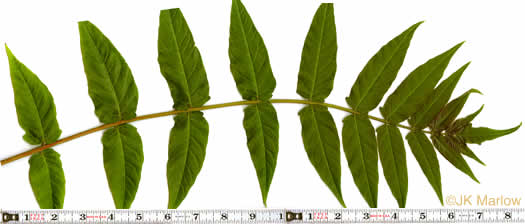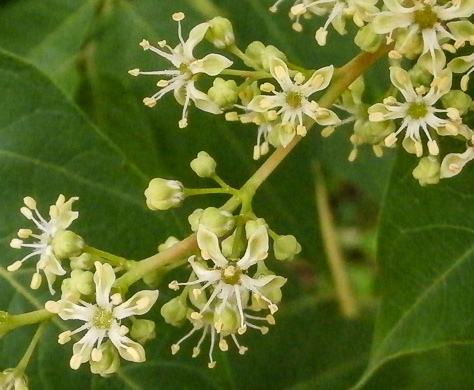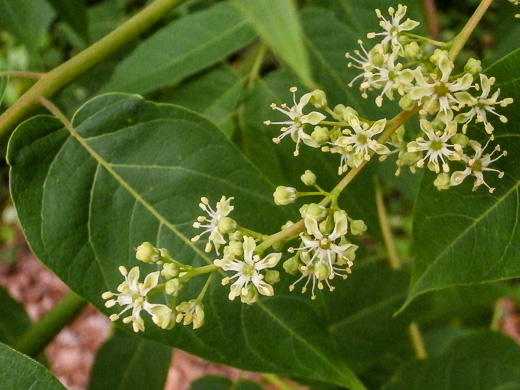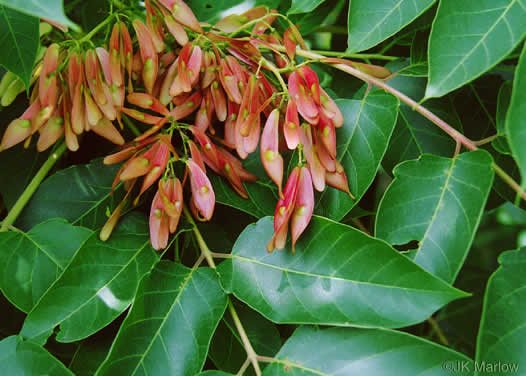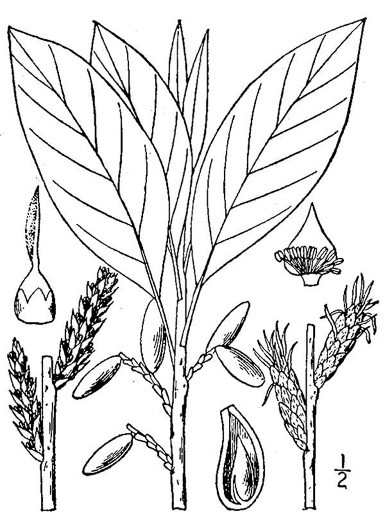Hovering over an image will enlarge it and point out features (works better on desktop than on mobile).
![]() A camera indicates there are pictures.
A camera indicates there are pictures.
![]() A speaker indicates that a botanical name is pronounced.
A speaker indicates that a botanical name is pronounced.
![]() A plus sign after a Latin name indicates that the species is further divided into varieties or subspecies.
A plus sign after a Latin name indicates that the species is further divided into varieties or subspecies.
Most habitat and range descriptions were obtained from Weakley's Flora.
Your search found 2 taxa in the family Simaroubaceae, Quassia family, as understood by Weakley's Flora.

![]()
![]() Common Name:
Ailanthus, Tree-of-heaven, Stink-tree
Common Name:
Ailanthus, Tree-of-heaven, Stink-tree
Weakley's Flora: (4/14/23) Ailanthus altissima FAMILY: Simaroubaceae
SYNONYMOUS WITH PLANTS National Database: Ailanthus altissima FAMILY: Simaroubaceae
SYNONYMOUS WITH Vascular Flora of the Carolinas (Radford, Ahles, & Bell, 1968): Ailanthus altissima 104-01-001 FAMILY: Simaroubaceae
Habitat: Roadsides, forests, disturbed areas, including cities, especially in moist, fertile soils
Common (uncommon in Coastal Plain)
Non-native: east Asia

![]() Common Name:
Florida Corkwood
Common Name:
Florida Corkwood
Weakley's Flora: (4/24/22) Leitneria floridana FAMILY: Simaroubaceae
SYNONYMOUS WITH PLANTS National Database: Leitneria floridana FAMILY: Leitneriaceae
Habitat: Swamps and cabbage palm / sawgrass marshes, especially in the transition zones between coastal hydric hammocks (oak and palm with limestone near the surface) and sawgrass marshes
Rare
Native to Georgia
Your search found 2 taxa. You are on page PAGE 1 out of 1 pages.

